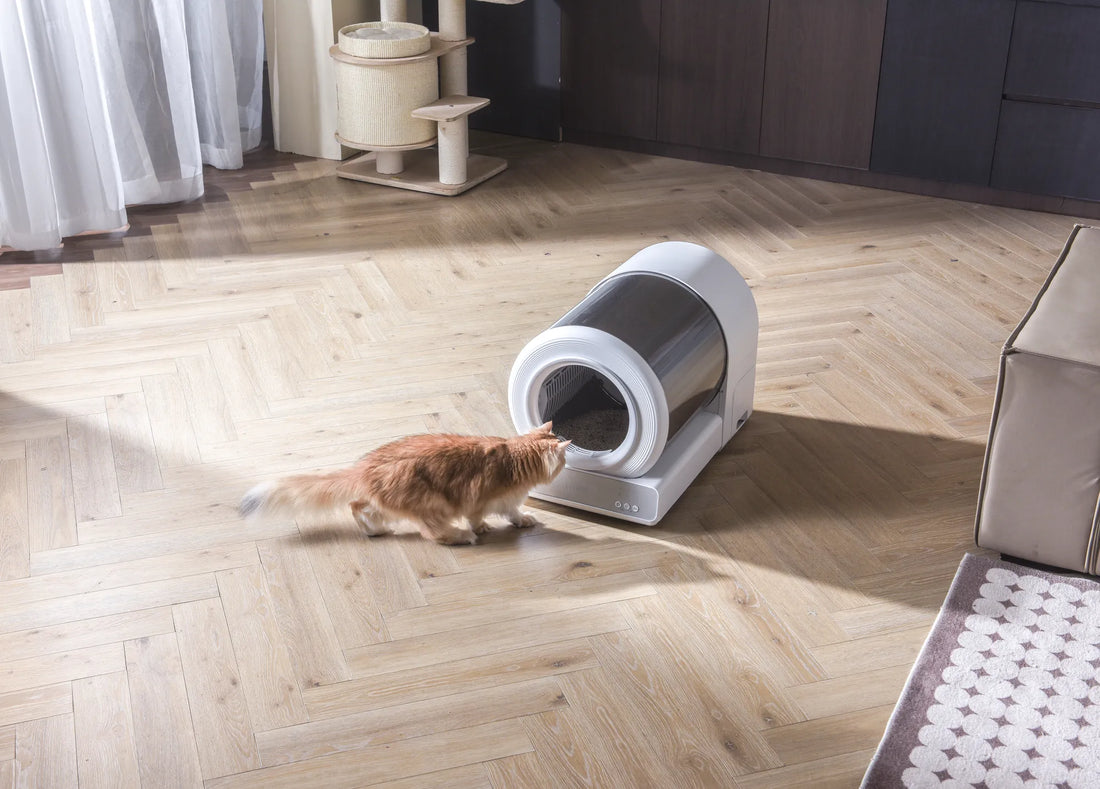If you've ever walked into your home to find your cat happily digging, rolling, or even sleeping in the litter box, you're not alone. While this behavior can be baffling and frustrating for pet owners, it's important to understand why cats do this and how to redirect their energy. Cats are naturally curious and playful creatures, and the litter box can sometimes become an unexpected source of entertainment. However, this habit can be unhygienic and potentially harmful to your cat's health. In this article, we'll explore the reasons behind this behavior and provide actionable solutions to help your cat break the habit.
Why Do Cats Play in the Litter Box?
Understanding the root cause of your cat's litter box antics is the first step toward addressing the issue. Cats may play in the litter box for several reasons:
- Curiosity: Kittens, in particular, are naturally curious and may explore the litter box as part of their discovery process.
- Boredom: A lack of mental and physical stimulation can lead cats to seek entertainment in unusual places, including the litter box.
- Stress or Anxiety: Changes in the household, such as a new pet or a move, can cause stress, leading to unusual behaviors.
- Medical Issues: In some cases, playing in the litter box may indicate an underlying health problem, such as a urinary tract infection or digestive issues.
How to Stop Your Cat from Playing in the Litter Box
Now that we've identified the potential causes, let's dive into practical solutions to curb this behavior:
1. Provide Adequate Mental and Physical Stimulation
Cats need regular playtime to stay mentally and physically engaged. Invest in interactive toys, scratching posts, and climbing structures to keep your cat entertained. Schedule daily play sessions to burn off excess energy and reduce the likelihood of litter box play.
2. Create a Comfortable and Stress-Free Environment
Ensure your cat feels safe and secure in their environment. Provide cozy hiding spots, comfortable bedding, and access to windows for bird-watching. If your cat is stressed, consider using calming pheromone diffusers or consulting a veterinarian for additional support.
3. Evaluate the Litter Box Setup
The type and placement of the litter box can influence your cat's behavior. Choose a box that is appropriately sized for your cat and use a litter type they prefer. Place the box in a quiet, low-traffic area to reduce stress and make it less appealing as a play area.
4. Clean the Litter Box Regularly
A dirty litter box can attract your cat's attention and encourage digging or playing. Scoop the box daily and change the litter frequently to maintain cleanliness. A clean box is less likely to become a source of entertainment.
5. Monitor for Medical Issues
If your cat's litter box behavior persists or is accompanied by other symptoms, such as changes in appetite or litter box habits, consult your veterinarian. Addressing any underlying health issues is crucial for your cat's well-being.
Preventing Litter Box Play in Kittens
Kittens are especially prone to exploring and playing in the litter box. To prevent this behavior, consider the following tips:
- Supervise Playtime: Keep an eye on your kitten during play sessions and redirect their attention if they approach the litter box.
- Use a Covered Litter Box: A covered box can deter kittens from seeing the litter as a play area.
- Introduce Alternative Play Areas: Provide plenty of toys and play spaces to keep your kitten engaged and away from the litter box.
When to Seek Professional Help
If you've tried the above strategies and your cat continues to play in the litter box, it may be time to seek professional help. A certified animal behaviorist or veterinarian can assess your cat's behavior and provide tailored recommendations. In some cases, medication or specialized training may be necessary to address the issue.
By understanding your cat's needs and implementing these strategies, you can help them break the habit of playing in the litter box. Remember, patience and consistency are key to achieving lasting results. Your cat's health and happiness are worth the effort!













